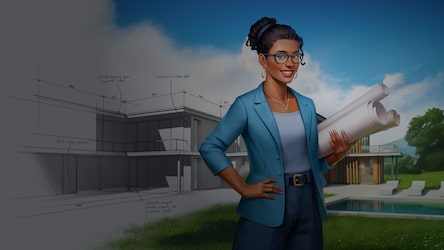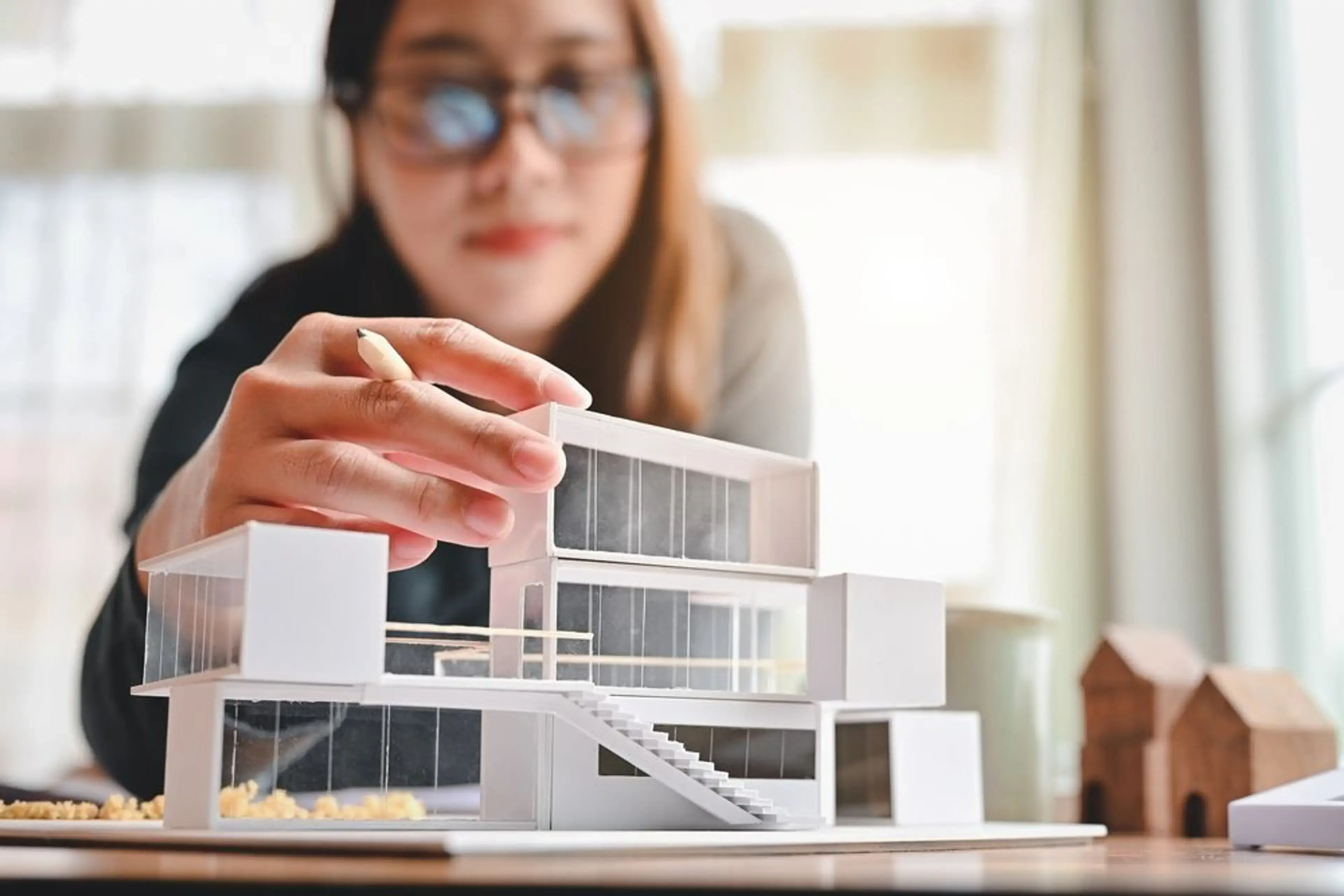Architect Checklist for New Commercial Projects
Architect Checklist for New Commercial Projects
Blog Article
Discover the Essential Abilities and Qualities Every Architect Need To Possess
As an architect, you recognize that success in your area goes beyond simply technological abilities. It has to do with blending creative thinking with practicality, cultivating collaboration, and taking care of projects properly. Each quality plays an important function in your ability to create spaces that motivate and function well. What are the details skills that can absolutely set you apart? Allow's discover the crucial qualities every Architect must grow to prosper in this ever-evolving profession.
Creative Thinking and Advancement
Creative thinking and development are at the heart of style, driving the layout of spaces that motivate and operate effortlessly. As an architect, you'll need to think outside package, pushing limits to create special options for your clients. You'll constantly explore brand-new products, techniques, and modern technologies to boost your designs. Accepting development means staying ahead of fads while being versatile to change.
You'll also draw motivation from numerous resources-- nature, art, and even daily life can stimulate fresh concepts. This capability to blend imagination with usefulness permits you to attend to intricate troubles, ensuring your layouts meet both practical and aesthetic needs.
Solid Interaction Abilities
While making amazing areas calls for imagination, strong communication abilities are equally as critical for engineers. You need to share your concepts plainly to customers, contractors, and group participants. Paying attention is equally as essential; comprehending your customer's vision aids you create styles that absolutely fulfill their needs.
You'll commonly need to clarify complex principles in such a way that's very easy to realize, whether you're presenting a proposal or discussing materials. Effective interaction fosters partnership, guaranteeing everyone is on the very same web page throughout the job.
Structure partnerships is important, also. When you establish count on and relationship, clients are most likely to share their problems and feedback, leading to far better results.
Last but not least, don't take too lightly the power of body language and aesthetic aids. They can enhance your message and make your presentations extra appealing. Solid communication skills not just boost your designs however likewise enhance your expert connections in the architectural globe.
Technical Proficiency in Design Software
As you browse the ever-evolving globe of architecture, grasping style software program becomes important for equating your imaginative ideas right into tangible plans. Acquainting on your own with programs like AutoCAD, Revit, and SketchUp will not just enhance your layout capabilities yet also enhance your process. These devices allow you to create detailed illustrations, 3D designs, and even simulations that can aid you picture and provide your principles better.
Frequently updating your abilities and checking out new attributes can set you apart from your peers, ensuring your layouts are exact and cutting-edge. Inevitably, technical proficiency in style software program is a cornerstone of successful architecture, assisting you bring your visions to life.
Comprehending of Engineering Concepts

Recognizing design principles likewise enables you to prepare for potential difficulties early in the design procedure. You can make enlightened selections that enhance your layouts when you're aware of exactly how different products behave under various conditions. Your styles ought to not only be visually pleasing but likewise useful and sustainable.
Additionally, a strong grasp of engineering concepts permits you to innovate within restraints. You can press creative boundaries while still adhering to security standards. Inevitably, this understanding enriches your architectural method and establishes you apart in a competitive area.
Job Monitoring Abilities
Effective job monitoring capacities are important for engineers, allowing you to look after all facets of a task from conception to conclusion. You'll need to collaborate with different stakeholders, including specialists, clients, and engineers, making certain everyone's on the exact same web page. Establishing clear objectives, timelines, and budgets is essential; it assists you keep the job on course and within extent.
As an engineer, you should additionally be skilled at threat management, recognizing possible concerns prior to they intensify. Strong interaction skills are crucial, permitting you to verbalize your vision and inspire your group. You'll profit from being organized and detail-oriented, as this aids improve processes and prevent pricey delays.
In click this addition, flexibility is essential; tasks frequently develop, and being versatile allows you to respond effectively to changes. Ultimately, your task administration skills can significantly influence the success of your architectural undertakings, guaranteeing you deliver quality results on time and within budget.
Attention to Detail
While managing jobs is essential, your attention to detail can make a substantial difference in the top quality of your job. Every line you draw, every product you pick, and every small spec you keep in mind adds to the general success of a task. You require to be careful, making sure that your layouts not only satisfy aesthetic standards however additionally comply with building policies and codes.
Missing out on even a little information can bring about expensive modifications or security issues down the line. By growing an eager eye for detail, you enhance your capability to spot prospective troubles prior to they escalate. This alertness not only saves you time and sources yet likewise builds your track record as a dependable Architect. Remember, it's usually the smallest information that boost a task from great to remarkable. Accept this skill, and allow it lead your layout process, guaranteeing that your vision is carried out perfectly.
Versatility and Problem-Solving Abilities
As a designer, you'll often deal with unexpected adjustments in style and job demands. Your ability to welcome these changes and discover ingenious remedies is essential for success. Staying versatile in your technique not only boosts your analytical skills yet additionally maintains your tasks on track.
Embracing Modification in Layout
Accepting change in style is essential for designers, particularly when steering developing customer requirements and arising technologies. You require to cultivate adaptability, as tasks go frequently move direction based upon new insights or restraints. Being open to transform enables you to check out ingenious techniques and develop remedies that reverberate with your clients.
When encountered with obstacles, your analytic abilities come right into play. You'll usually require to reconsider ideas and adjust strategies on the fly, guaranteeing that the last end result lines up with the customer's vision while satisfying security and regulative standards. By being versatile and resourceful, you not only improve your styles however also develop trust with your customers, confirming that you can navigate the intricacies of contemporary design effectively.
Ingenious Solutions to Challenges

Versatility in Task Administration
While maneuvering the intricacies of job administration, adaptability becomes an important asset for architects. You'll typically encounter unanticipated obstacles, from layout modifications to budget restrictions, calling for quick reasoning and adaptability. Accepting adjustment allows you to pivot your strategies and find cutting-edge services, ensuring job success.
Strong analytical skills are essential; they enable you to evaluate scenarios, weigh options, and implement reliable remedies on the fly. When collaborating with diverse groups, being open to feedback and alternative ideas fosters collaboration and stimulates creative thinking.
Often Asked Concerns
What Educational History Is Needed to End Up Being an Engineer?
To end up being an architect, you'll need a minimum of a professional level in design, typically a Bachelor's or Master's. Finishing an internship and obtaining licensure via exams is crucial for your occupation advancement.
Exactly How Crucial Is Networking in the Design Field?
Networking's crucial in style. It helps you develop partnerships, uncover task opportunities, and gain insights from knowledgeable experts. By linking with others, you enhance your occupation leads and stay updated on industry fads and growths.
What Are the Typical Job Paths for Architects?
Typical job courses for designers consist of style roles in companies, project administration, metropolitan planning, and specialized areas like sustainable architecture. Architect. You may additionally check out training or consulting, depending on your experiences and passions
Just How Can Engineers Remain Updated With Sector Fads?
To remain updated with market patterns, you should frequently participate in seminars, sign up with expert associations, subscribe to pertinent magazines, and involve with online discussion forums. Connecting with peers likewise assists you gain understandings right into arising advancements in design.
What Role Does Sustainability Play in Modern Design?
Sustainability forms contemporary architecture by emphasizing energy effectiveness, source conservation, my company and eco-friendly materials. You'll create areas that minimize ecological effect, enhance resident health, and react to environment challenges, making your layouts extra impactful and relevant.
While developing exceptional areas needs imagination, strong communication skills are simply as vital for engineers. Strong communication skills not just boost your layouts but also reinforce your professional connections in the architectural globe.
Efficiency in design software application lays the groundwork for a much deeper understanding of engineering concepts, which is vital for architects.As an engineer, you'll commonly face unexpected modifications in design and project demands.Accepting change in design is important for architects, especially when guiding developing client requirements and emerging technologies.
Report this page